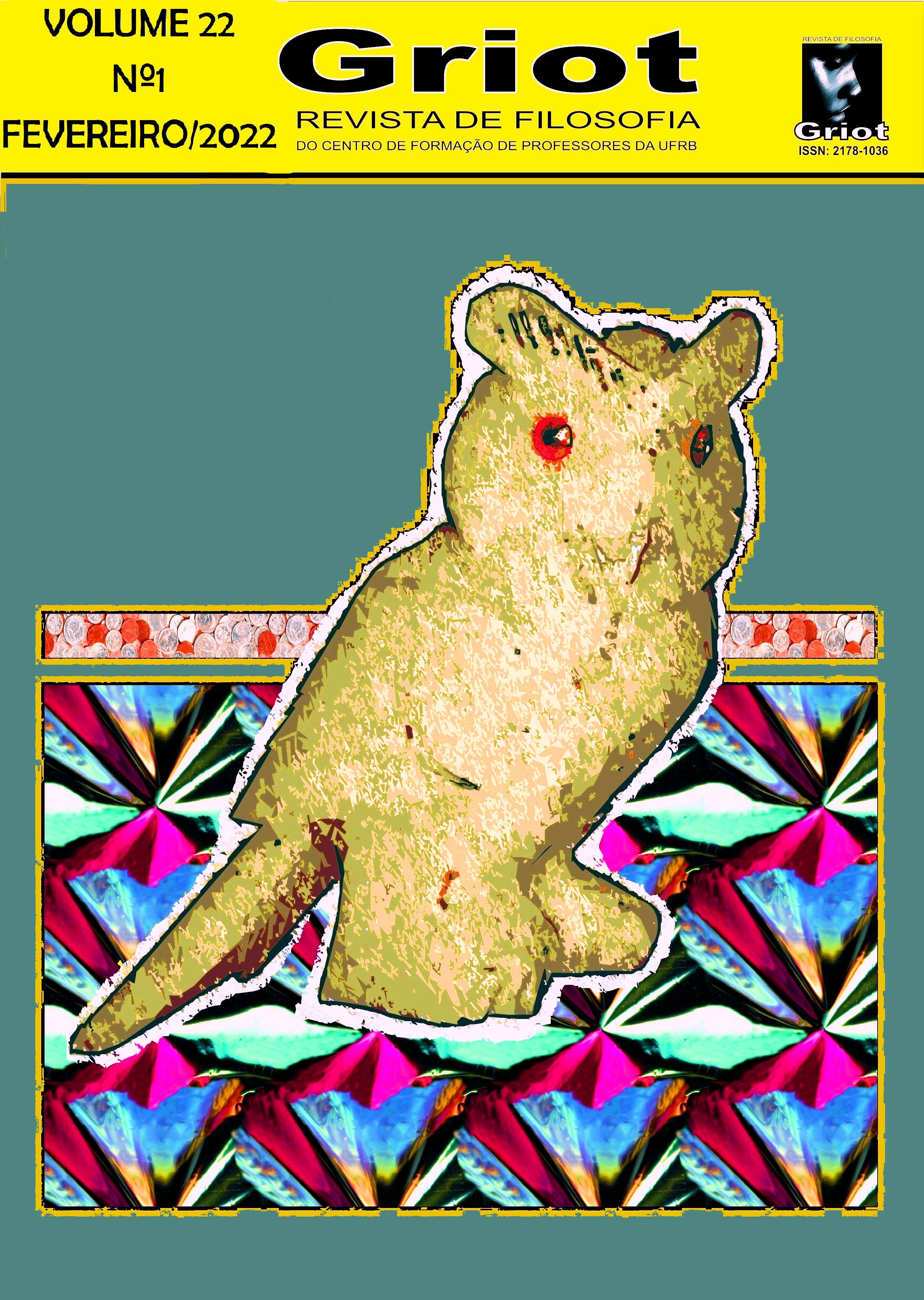Kierkegaard’s psychology experimenterende as a response to psychologia empirica and experimentelle psychologie
DOI:
https://doi.org/10.31977/grirfi.v22i1.2605Keywords:
Psychology; Philosophy; Kierkegaard; XIX century; Psychologism.Abstract
The question about the object, method, and nature of Psychology in the first half of the 19th century received three proposals: the first, presented by Christian Wolff, appealed to the conciliation between the Psychologia Rationalis and the Psychologia Empirica based on the process of Experimentalphysik and in the Principle of Sufficient Reason; the second, proposed a shift towards Physiology this proposal was responsible for establishing the Psychology as an independent Science; the third offers an existential approach to mental phenomena. We argue that the project of Søren Kierkegaard (1813-1855) presents a Psychology Experimenterende as a response to Psychologia Empirica and the Experimentelle Psychologie.
Downloads
References
ARAUJO, Saulo De Freitas, “O Lugar de Christian Wolff na História da Psicologia”. Universitas Psychologica, 3, 11 p. 1024, 2012.
ARISTÓTELES. De Anima. Tradução: Maria Cecília Gomes dos Reis. Editora 34, 2012.
ARISTÓTELES. Parva Naturalia. Oxford: New York: Oxford at the Clarendon Press, 2000.
BEISER, Frederick. Depois de Hegel. Editora Unisinos: São Leopoldo, 2017.
BELL, Mathew. The German Tradition of Psychology in Literature and Thought, 1700-1840. Cambridge: University Press, 2005.
BRENTANO, Franz. O Psicologismo: Ou o porquê não sou um psicologista. Trad: Evandro Brito. Revista Peri, V 05. N 01, p. 169-172, 2013.
DAIBER, Jürgen, Experimentalphysik des Geistes: Novalis und das romantische Experiment. Vandenhoeck & Ruprecht, Göttingen, p.330, 2001.
DYCK, Corey. Kant and rational psychology. Oxford University Press, Oxford, United Kingdom ; New York, NY, First edition., p.257, 2014.
HANSEN, H. y HANSEN, L. Bork, “The temporal lobe epilepsy syndrome elucidated through Søren Kierkegaard’s authorship and life”. Acta Psychiatrica Scandinavica, 3, 77, p. 352–358, 1988.
HATFIELD, Gary, “Kant and Empirical Psychology in the 18Th Century”. Psychological Science, 6, 9. p. 423–428, 1998.
HEGEL, G. W. F. Fenomenologia do espírito. 1. Ed. Vozes, Petrópolis, 6. ed., p. 271, 2001.
KANT, I. Anthropologie in pragmatischer Hinsicht. Reinhard Brandt. Meiner: Hamburg, 2000.
KANT, I. Crítica Da Razão Pura. Lisboa: Fundação Calouste Gulbenkian, 2001.
KIERKEGAARD, S. Eighteen upbuilding discourses. Princeton University Press, Princeton, N.J, p. 559, 1990.
KIERKEGAARD, S. A Repetição: Um ensaio em psicologia experimental. Tradução de José Miranda Justo. Lisboa: Relógio d’água, 2008.
KIERKEGAARD, S. A. Fear and Trembling; Repetition, tradução de Howard V. Hong e Edna H. Hong. Princeton, New Jersey: Princeton University Press, 1983.
KIERKEGAARD, S. Pós-escrito às migalhas filosóficas. Tradução de Álvaro Montenegro Valls. São Paulo: Vozes, 2013.
KIERKEGAARD, Søren. O conceito de ironia: constantemente referido a Sócrates. Tradução de Álvaro Valls. Ed. Universitária São Francisco, Bragança Paulista, 2006.
KLEMPE, Sven Hroar, “Kierkegaard and Psychology as the Science of the ‘Multifarious Life’”. Integrative Psychological and Behavioral Science, 3, 47, p. 367–375, 2013.
KRÜGER. Versuch einer Experimental-Seelenlehre. Halle/Helmst dt: Hemmerde, 1756.
KURZER, J. G. S. Begriff aller Wissenschaften und ändern Teilen der Gelehrsamkeit. Frankfurt, Leipzig, p. 130, 1786.
KUSCH, Martin. Psychologism: a case study in the sociology of philosophical knowledge. London; New York: Routledge, 1995.
MCCARTHY, Vincent A., Kierkegaard as psychologist. Northwestern University Press, Evanston, Illinois, 2015, p.190, 2015.
MCDONALD, W. Kierkegaard’s experimenting Psychology. In: Buben, Adam (ed.), The Kierkegaardian mind. Routledge, New York, 2019.
MOLBECH, C. Dansk Ordbog indeholdende det danske Sprogs Stammeord, Copenhagen: Gyldendal, 2 vols, 1833.
Ordbog over det danske Sprog – Historisk Ordbog – 1700-1950, 2014. 28 vols. Disponível em http://ordnet.dk/ods. Último acesso em: 22 de fevereiro de 2022.
PORTA, M. Psychologism. Routledge encyclopedia of philosophy. Routledge, London; New York, 2020.
SCHLEGEL, Friedrich von. Philosophische Vorlesungen [1800-1807]: zweiter teil. Schöningh, München, 1964.
SHARPLESS, Brian A., “Kierkegaard’s conception of psychology.” Journal of Theoretical and Philosophical Psychology, 2, 33, p. 90–106, 2013.
SUZUKI, Márcio, “Os desdobramentos da psicologia experimental em Moritz, Kant e Kierkegaard”. DoisPontos, 1, 17, 2020.
TANG, Chenxi. Kierkegaard and the Culture of Psychological Experimentation in the Nineteenth Century. KulturPoetik, Bd. 6, H. 2 p. 172-188 2006.
TANG, Chenxi. Repetition and Nineteenth-Century Experimental Psychology. Kierkegaard Studies Yearbook, 2002.
WALCH, J. G. Philosophisches Lexicon, Ed Justus Christian Hennings, Ed. 4. Leipzig, p. 324-5, 1775.
WOLFF, C. Einleitende Abhandlung über Philosophie im allgemeinen (G. Gawlick und L. Kreimendahl, Übers. und Hgg.). Stuttgart/Bad Cannstatt: Frommann- Holzboog. Erstausgabe, 1728/2006.
WOLFF, C. Philosophia rationalis sive Logica. Frankfurt: Rengeriana, 1732.
WOLFF, C. Prolegomena to empirical and rational psychology. In: R. Richards. Christian Wolff’s prolegomena to empirical and rational psychology: Translation and commentary. Proceedings of the American Philosophical Society, p. 227-239, 1980.
WOLFF, C. Psychologia empirica, methodo scientifica pertractata. Frankfurt/Leipzig: Rengeriana, 1738.
WUNDT, W. Outlines of Psychology. Leipzig: W. Engleman, 1897.
WUNDT, W. Principles of physiological psychology. Trans: E. B. Titchener. Sonnenschein: London, 1904.
Downloads
Published
How to Cite
Issue
Section
License
Copyright (c) 2022 Natalia Mendes Teixeira

This work is licensed under a Creative Commons Attribution 4.0 International License.
The authors who publish in Griot: Revista de Filosofia maintain the copyright and grant the magazine the right of first publication, with the work simultaneously licensed under the Creative Commons Attribution 4.0 International License, allowing sharing and adaptation, even for commercial purposes, with due recognition of authorship and initial publication in this journal. Read more...









































































